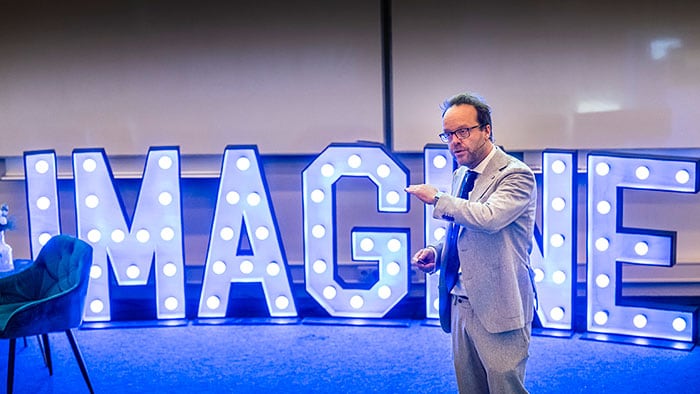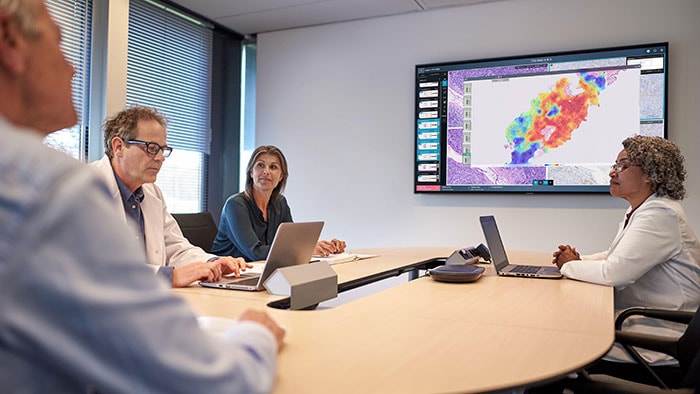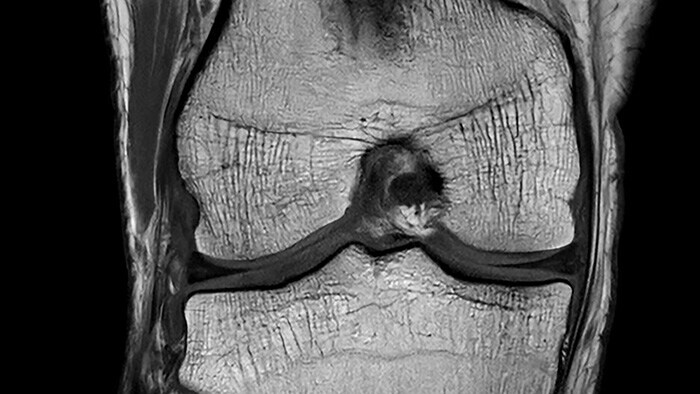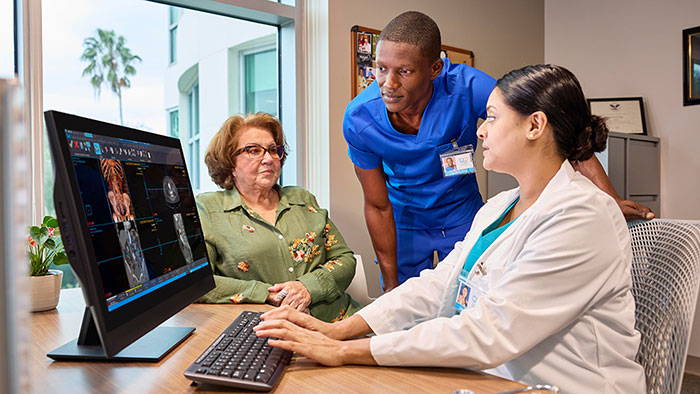Roy Jakobs: “Veranderingen door AI in de gezondheidszorg gaan sneller dan we denken”
feb 06, 2025 | 2 minuten leestijd
“Ben je volledig voorbereid op de revolutie in de gezondheidszorg, gedreven door AI en andere digitale technologieën?” Slechts een handvol aanwezigen stak hun hand op in reactie op deze vraag van Roy Jakobs, CEO van Philips. Zijn reactie was een gepassioneerde oproep tot actie: “Ik geloof dat er een echte verschuiving aankomt in de gezondheidszorg. En het gebeurt sneller dan we denken. We moeten er open voor staan. We moeten nu investeren in deze nieuwe wereld. En we hebben iedereen binnen het zorgsysteem nodig om dit te realiseren.”
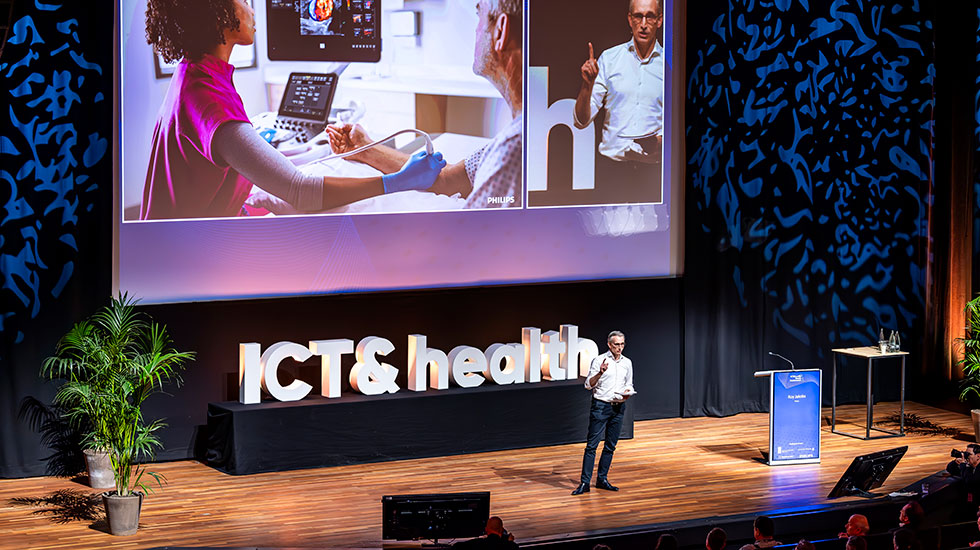
Tijdens de opening van de ICT&health World Conference 2025 in het MECC Maastricht schetste Roy de urgente uitdagingen in de gezondheidszorg, zoals de toenemende druk op zorgprofessionals, en hoe AI en andere digitale technologieën nu al helpen deze uitdagingen aan te pakken. Zijn boodschap: de veranderingen gaan steeds sneller, maar innovatie draait niet om de technologie zelf. Het gaat erom hoe deze mensen helpt die erop vertrouwen.
Meer tijd voor zorgprofessionals
Roy sprak over de aanpak die Philips hanteert bij het innoveren in de zorg. Een kernvraag die ze zichzelf stellen, is: “Hoe kunnen we technologie en AI inzetten om meer tijd vrij te maken voor zorgprofessionals, zodat zij zich volledig op hun patiënten kunnen richten?” Dit is een cruciale vraag in een tijd waarin zorgprofessionals zich ondersteund, betrokken en energiek zouden moeten voelen, in plaats van overweldigd door de werkdruk.
Een van de grootste uitdagingen bij de huidige werkdruk is tijdgebrek, waarvan een aanzienlijk deel wordt opgeslokt door administratieve taken. Zorgprofessionals besteden bijvoorbeeld tot 20 minuten per uur aan administratieve werkzaamheden. Roy stelde de vraag: “Wat als we dat terug kunnen brengen tot slechts 5 minuten? Wat zou dat betekenen voor de extra zorg die zij kunnen bieden?”

Toenemende vraag
Het zorgsysteem blijft onder druk staan en functioneert niet zoals het zou moeten, maar verandering is op komst. Roy wees op verschillende positieve ontwikkelingen, zoals vroegere diagnoses, betere behandelingen en zelfs genezingen. Tegelijkertijd benadrukte hij dat de zorgvraag sneller groeit dan het systeem aankan. “Er zijn wereldwijd meer patiënten dan er zorgprofessionals zijn om hen te ondersteunen,” zei hij. “Veel zorgverleners voelen zich overbelast en uitgeput. Dit moet veranderen.”
Als CEO van Philips voelt Roy een diepe verantwoordelijkheid om bij te dragen aan deze transformatie. Zijn visie: innovatie moet hand in hand gaan met samenwerking. “Wij richten ons op het ondersteunen van klinische werkprocessen in gebieden waar we een sterke aanwezigheid hebben, zoals cardiologie, intensive care en katheterisatiekamers.”

Systeemverandering is essentieel
Roy riep de hele sector op om bij te dragen aan de noodzakelijke veranderingen. “Er ligt een enorme kans om samen een systemische verandering te realiseren. Echte vooruitgang ontstaat door samenwerking.” Volgens hem is er samenwerking nodig tussen zorgprofessionals, ziekenhuisbestuurders, innovators, datawetenschappers, beleidsmakers, onderzoekers en investeerders. “Als iedereen binnen het zorgsysteem bijdraagt, kunnen we de gezondheidszorg volledig transformeren en een toekomst creëren waarin betere zorg toegankelijk wordt voor meer mensen.”
CEO Roy Jakobs: “AI-driven changes in healthcare are happening faster than we think”
“Are you fully prepared for the revolution in healthcare driven by AI and other digital technologies?” Only a handful of attendees raised their hands in response to this question from Roy Jakobs, CEO of Philips. He responded with an impassioned call to action: “I believe a real shift is coming in healthcare. And it’s happening faster than we think. We need to be open to it. We need to invest in this new world now. And we need everyone within the healthcare system to make it a reality.”

Speaking at the opening of the ICT&health World Conference 2025 at the MECC Maastricht, Roy outlined the urgent challenges in healthcare, such as the increasing pressure on healthcare professionals, and how AI and other digital technologies are already helping to address these challenges. His message: the pace of change will only accelerate, but innovation is not about the technology but about how it helps the people who rely on it.
More time for healthcare professionals
Roy talked about the approach Philips takes to innovating in healthcare. A key question we like to ask, he said, is: “How can we use technology and AI to free up more time for healthcare professionals so they can focus entirely on their patients?” This is a critical question to ask at a time when healthcare professionals should “feel supported, engaged and energized rather than overwhelmed by workload pressures.”
One of the biggest challenges in dealing with the current workload is a lack of time, a significant portion of which is consumed by administrative tasks. Healthcare professionals can spend up to 20 minutes per hour on administrative work. Roy asked: “What if we could reduce that to just 5 minutes? What would that mean for the additional care they could provide?”

Growing demand
The healthcare system continues to struggle and does not function as it should, but change is coming. Roy highlighted several positive advancements, such as earlier diagnoses, better treatments, and even cures. At the same time, he stressed that healthcare demand is growing faster than the system can handle. “There are more patients worldwide than there are healthcare professionals to support them,” he said. “Many caregivers feel overburdened and overworked. This must change.”
As CEO of Philips, Roy said he feels a deep responsibility to contribute to this transformation. His vision: innovation must go hand in hand with collaboration. “We focus on supporting clinical workflows in areas where we have a strong presence, such as cardiology, intensive care, and catheterization labs.”

Systemic change is essential
Roy called on the entire industry to help drive the necessary changes. “There is an enormous opportunity to achieve systemic change together. Real progress happens through collaboration.” According to him, cooperation is needed between healthcare professionals, hospital administrators, innovators, data scientists, policymakers, researchers, and investors. “If everyone within the healthcare system contributes, we can transform healthcare entirely and create a future where better care becomes accessible to more people.”


